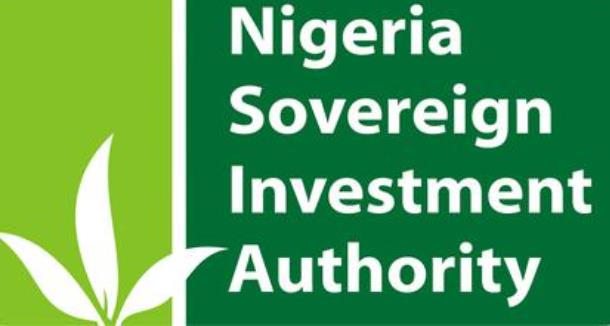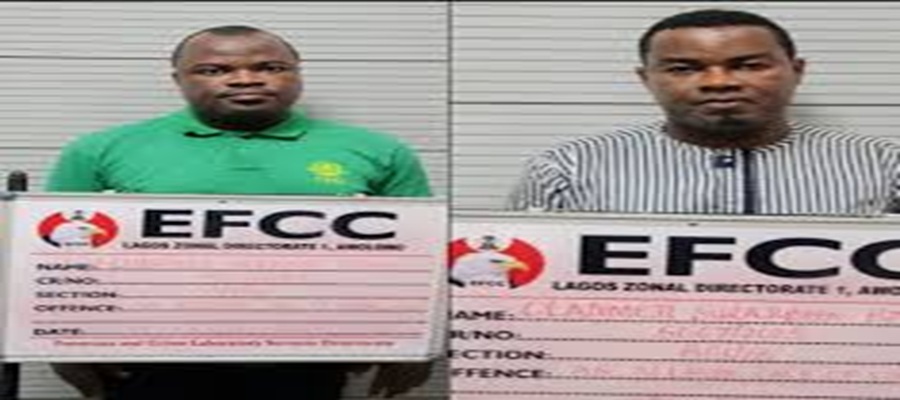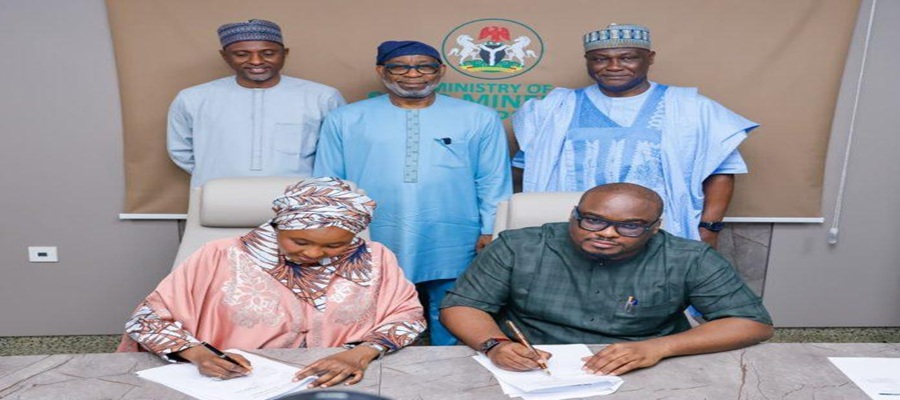News
NSIA, IFC To Stake $500m Into Renewable Energy Development In Nigeria

Nigerian Sovereign Investment Authority (NSIA) in partnership with the International Finance Corporation ( IFC) World Bank’s investment outlet is committing $500 million to renewable energy projects in Nigeria.

NSIA’s intervention in renewable energy is being carried out via its latest outlet – Renewables Investment Platform for Limitless Energy (RIPLE). Under RIPLE, the Authority in conjunction with IFC would be undertaking a pilot initiative located within the Tokarawa Industrial Hub in Kano State
It involves setting up a generation and distribution system to meet 70MW of unsuppressed energy demands of industrial activities, commercial enterprises, and residential customers in an area covering about 9,000 connections.
The project will be extended to other parts of the country in the course of time.
NSIA and IFC signed a formal agreement on renewable energy over the weekend in Abuja. The agreement entails NSIA committing $25 million as a seed investment to the project.
Speaking to reporters at the event sidelines, Managing Director/ Chief Executive Officer of NSIA, Mr Aminu Umar – Sadiq described the moment watershed.
“I think this is a watershed moment for the renewable energy space in Nigeria. We are hoping that this fund we are targeting, about $500 million will focus on renewable energy space in general. The strategy is in three folds.
“The first is around diesel displacement, the second is around franchising in general, and then the third is around the backward integration towards PV manufacturing in Nigeria ”
“Naturally, we start with a proof of consent project with baby steps. However, as always the ambition of the NSIA and the IFC as it relates to this fund, is to scale up; to be able to go large.
“We are hopeful that in the course of time, we’ll begin to feel the impact of projects that we are co-developing as well as co-executing for the benefits of Nigeria and Nigerians”, explained NSIA MD.
Speaking about funds commitment, he said $25 million was pledged by the NSIA as committed capital. The IFC, he added was also co-developing transactions up north by a franchise project of 70 megawatts in Kano state. He estimated the project should be delivered within a space of three to four years.
” There are a number of important considerations within your control and there are also a number out of your control. Typically in executing a large-scale infrastructure project, you are talking about three to four years. We are hopeful we should be able to implement a couple of our initial projects within that time.
“Upon the conclusion, by the time we’ve basically gone very far in implementing our first couple of projects, and we have a proof of consent in terms of the portfolio of projects that we can show external investors, then we’ll embark upon that we looking at about two to two and a half years”, he said.
Sadiq was confident Nigeria will overcome her power challenge.
” We are investors but by the grace of God that is the ambition- to be able to meet our power deficit through the generation of sustainable, renewable energy in Nigeria”.
Speaking in an interview, Mr Dan Craft, IFC Regional Manager ( Africa) underscored IFC’s interest on the renewable energy project in Nigeria.
“We are pretty much interested in everything you heard in that speech- access, efficiency, security, all on a climate-friendly basis. Our interest in the project is, working with credible partners who are committed to the long term to develop a project on a fully sustainable basis, delivering the most cost-effective power, as clean as possible. It’s all good. This is our interest in the project. We would love to find more partners like NSIA, but they don’t grow on trees”.
” At this early stage, what we’re working on is, development capital to seed the platform. But whenever we do this, it’s with a longer-term investment horizon. We’re not interested in just the upfront seed.
“In fact, if there is no long-term horizon, then we don’t do the first bit either. So what we’re looking at, is enough on a percentage share basis to get the thing moving. And then as more projects enter, the funding will follow.
Essentially, we don’t really have an upper limit for what we would like to finance in this space. Our problem is finding the opportunities to do so, which is why we’re so excited about this”, said IFC Regional Manager.
He said investment in renewable energy isn’t a new terrain as according to him, “We have done a number of renewable energy investments in solar and wind and hydro and transmission and distribution”.
“Like I said when I was speaking, it’s about finding the right way into the market. Bringing any of those solutions off the shelf doesn’t tend to work. This is the first step.
And as far as I know, certainly on the African continent, this is the first one of these we’ve done in terms of a platform”, he said.
News
EFCC Arraigns Two FSDH Bank Officials Over $307k, €50k Fraud


EFCC
News
AfDB Supports Francophone Africa Start-ups with €6.5M

The African Development Bank Group last week approved an investment of €6.5 million in the Saviu II fund in order to support technology start-ups through their seed phase and first institutional fundraising, mainly in French-speaking Central and West Africa.

The Bank will invest €4.5 million as equity and €2 million as a first-loss hedging tranche on behalf of the European Commission, under the Boost Africa Programme.
This participation of the Bank Group will enable the Saviu II fund to give priority to companies with a strong technological or digital component.
Saviu II, the second investment vehicle of Saviu Partners, plans to invest between €500,000 and €3 million in about 20 technology or technology-oriented business-to-business start-ups in the seed phase or carrying out first institutional fundraising.
The Saviu II venture capital fund aims to make at least 60% of its commitments in the French-speaking countries of West and Central Africa: Côte d ‘Ivoire, Cameroon, Benin, Senegal, Togo, Burkina Faso and Mali.
The fund can also co-invest in promising technology companies in East Africa that have a strong team and business model, and whose strategy includes entering the market in French-speaking West African countries and establishing a strong presence there.
In addition, the fund will devote a dedicated envelope to pre-seed investments, focusing on minority equity investments, usually in co-investment with studios, incubators or other ecosystem partners.
News
Nigeria Inks $1.3bn MoU with AFC for Alumina Refinery, Mining Push

Nigerian Government has signed a $1.3 billion Memorandum of Understanding (MoU) with Africa Finance Corporation (AFC) via the Solid Minerals Development Fund (SMDF) to fund an alumina refinery, national geoscience mapping, and a strategic investment vehicle for mining growth.

Special Assistant to the Minister of Solid Minerals Development, Segun Tomori, said the refinery will process one million tonnes of bauxite yearly using a modern Bayer process, powered by an on-site gas-fired cogeneration plant.
Minister Dele Alake called it a transformative milestone boosting GDP, aligning with reforms that improve investment climate, regulations, and licensing to attract private capital. He directed agencies to fast-track permits.
The 20-year project at 95% utilization eyes 19 million tonnes total output, $1.2 billion annual GDP addition, $25 billion economic impact, and $8 billion forex earnings, per feasibility studies.
SMDF Executive Secretary Fatima Shinkafi termed it the agency’s biggest funding deal, supporting value-addition policy.
The partnership extends to geoscience mapping for mineral data, de-risking exploration, and a joint vehicle for mining assets.
Permanent Secretary Engr. Farouk Yabo praised the reforms. Shinkafi signed for government; AFC’s Franklin Edochie for the corporation, witnessed by AFC CEO Samaila Zubairu.
Tomori positioned it as Nigeria’s largest private mining investment and FDI magnet.

 Telecom2 days ago
Telecom2 days agoSunil Bharti Mittal Conferred GSMA Lifetime Achievement Award for Transforming Global Telecommunications

 Telecom2 days ago
Telecom2 days agoWhy Digital Trust Matters: Secure, Responsible AI for African SMEs?

 General News2 days ago
General News2 days agoKrishnan Exits Africa Data Centre to Embark on Professional Chapter

 E-Business2 days ago
E-Business2 days agoJumia Tech Week 2026 Begins with Tech Deals on Smartphones, Electronics, and Everyday Technology

 General News3 days ago
General News3 days agoLeo Stan Ekeh at 70; thanks Tinubu, Obasanjo, Nigerians, Global Tech Community

 Broadcasting2 days ago
Broadcasting2 days agoNCAA Orders Overland Airways to Refund VAT Charged on 2025 Tickets

 E-Financial1 day ago
E-Financial1 day agoNRS Targets N40trillion in Tax, Royalty Revenue in 2026

 Telecom2 days ago
Telecom2 days agoHouse Probes Fintech Regulation via Public Hearing on New Commission Bill

























